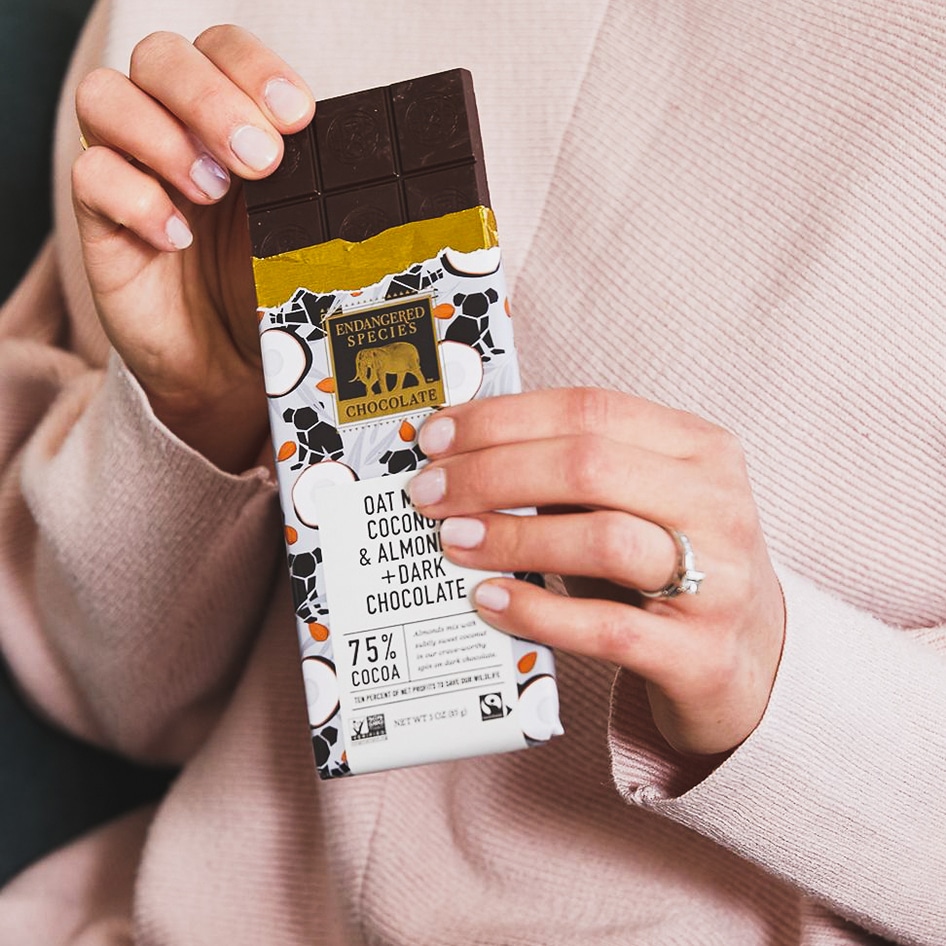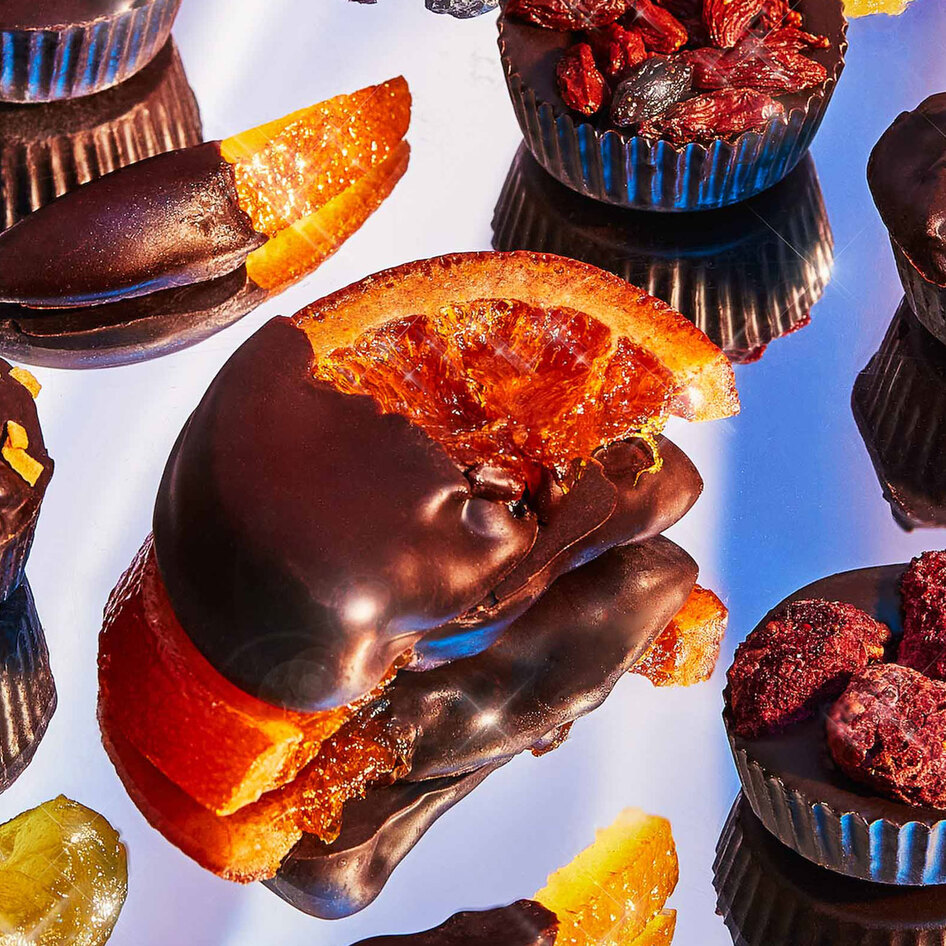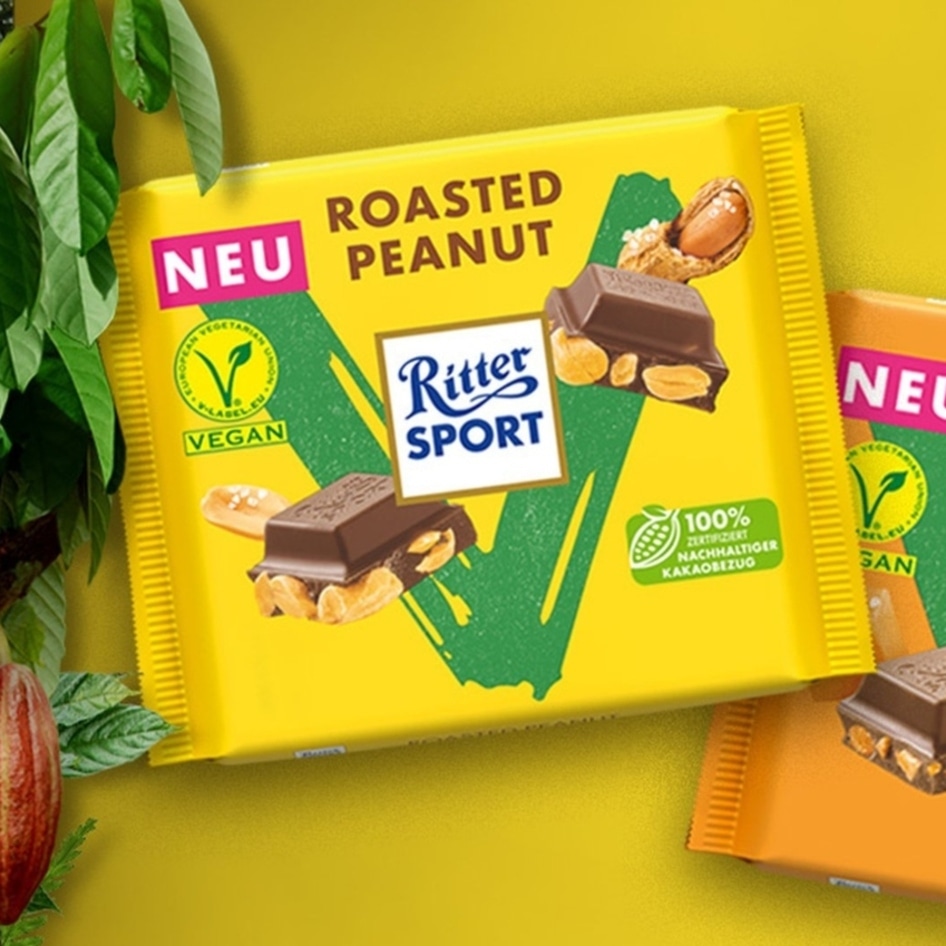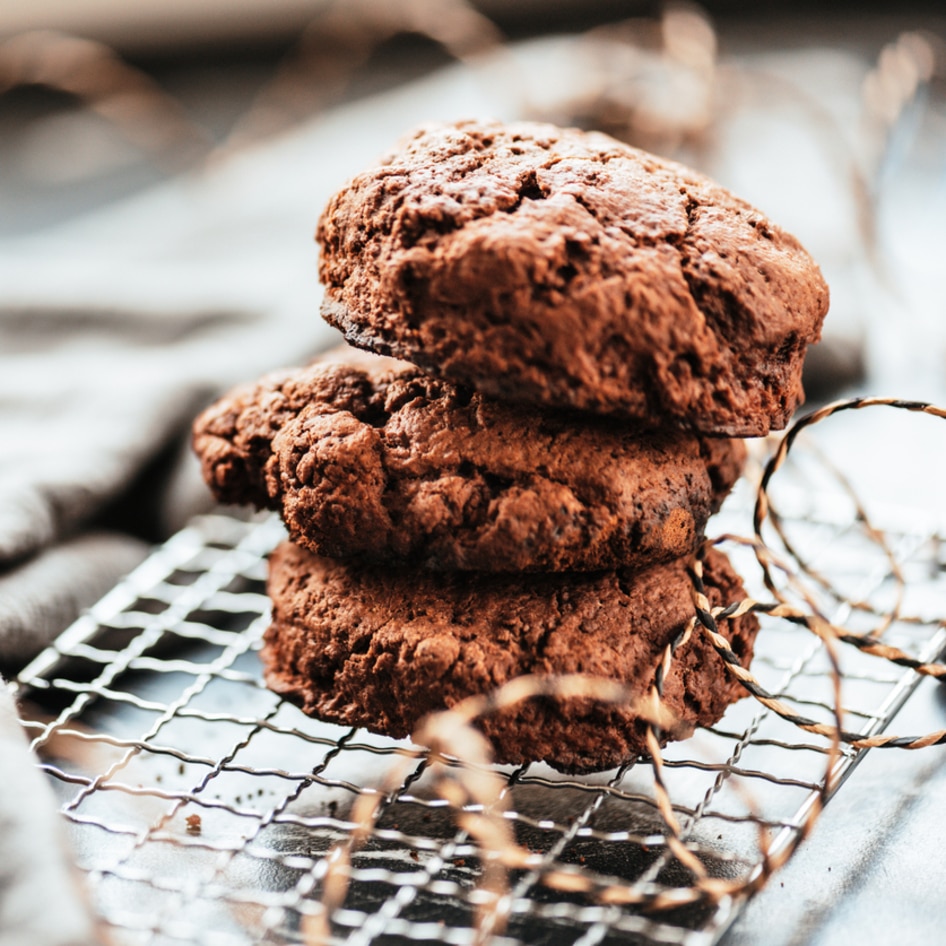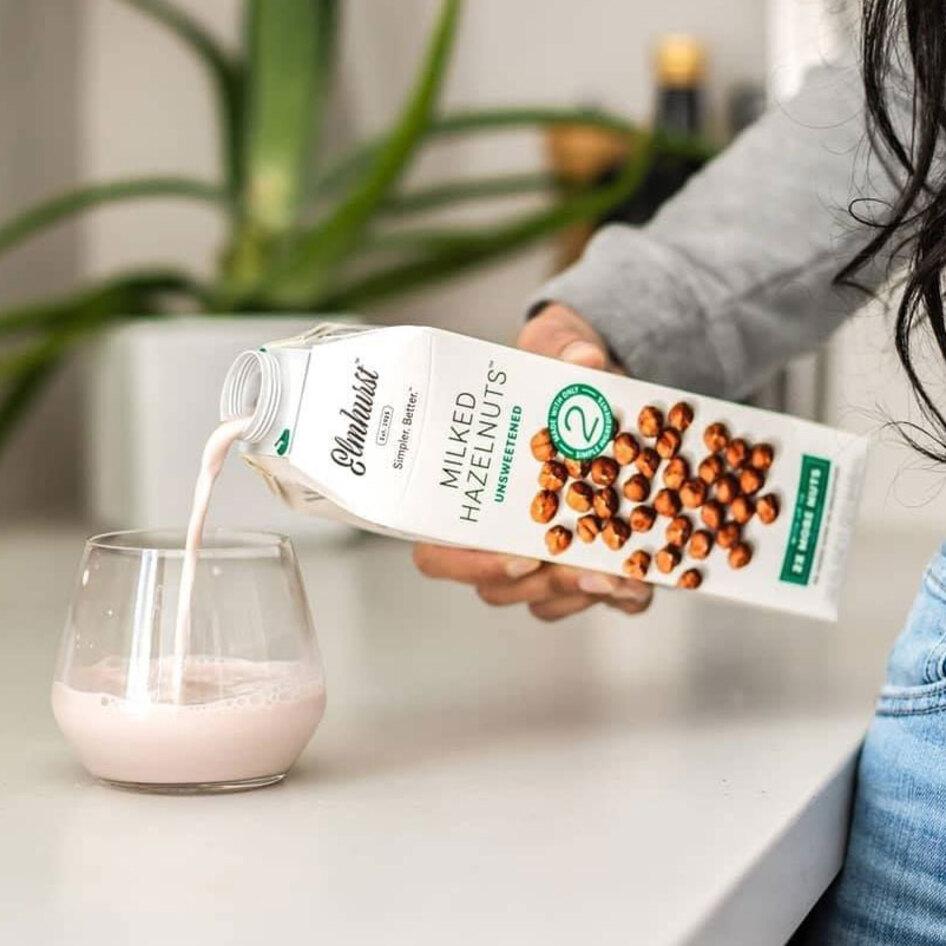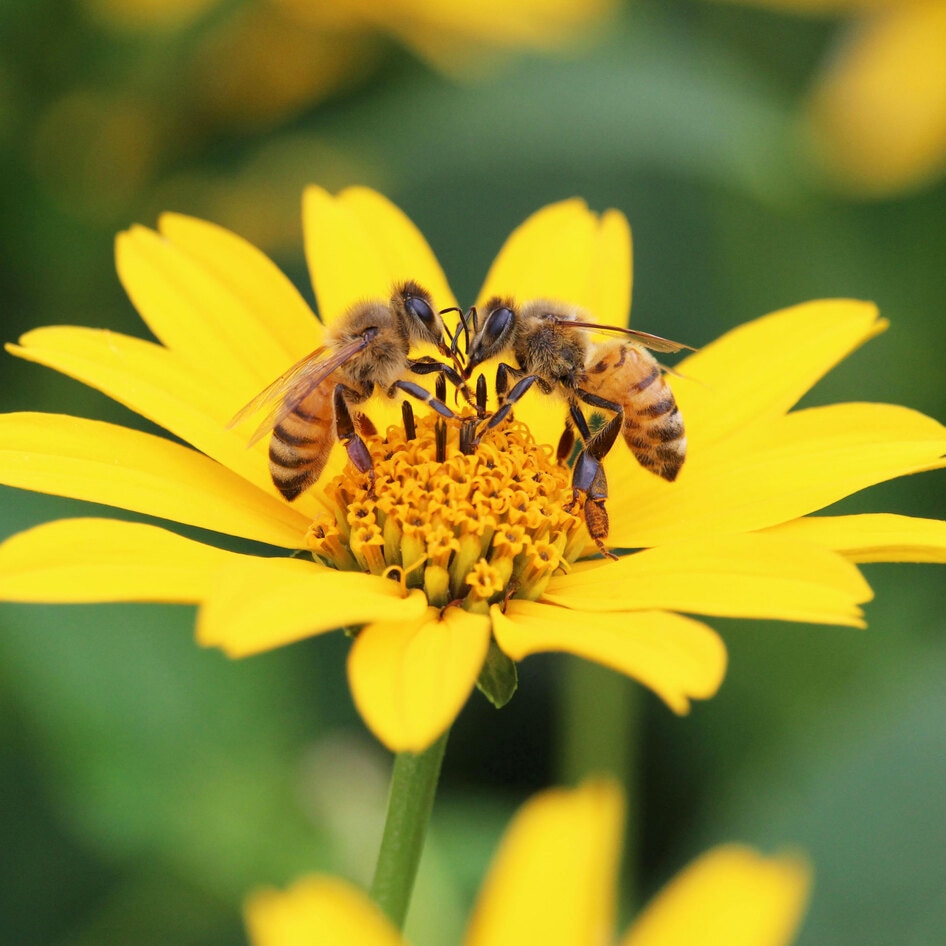Vegan Chocolate 101
Learn everything there is to know about this ‘food of the gods,’ from health benefits to politics.
February 15, 2011
With annual cacao production at 3 million tons, chocolate is everywhere. But there’s more to chocolate than the taste, so make sure to be informed before you indulge. With these tips, you’ll be equipped to buy the best kind of chocolate not just for your mouth, but also for your health, cacao workers, and the earth.
Dark Delight
Not only is most dark chocolate milk- and casein-free, it boasts health-boosting properties other chocolates lack. Studies suggest that dark chocolate and pure cacao powder are superfoods, as they contain equivalent or higher levels of antioxidants than juices made from blueberries and açaí berries. The antioxidants in cacao help lower blood pressure, prevent build-up of plaque in arteries, and have anti-clotting effects, all of which improves cardiovascular health. Plus, cacao contains naturally occurring minerals including potassium, calcium, magnesium, and iron.
Fair Trade
Beyond chocolate and its health benefits are the 40 to 50 million people worldwide who rely on the cacao crop for their livelihood. Around 70 percent of cacao production occurs in West Africa, with hundreds of thousands of children working on farms doing hazardous tasks such as using machetes and applying pesticides without protection. This is because thousands of children are sold to traffickers and end up as indentured slaves on cacao farms. Fairtrade International, a monitoring and certification process, works to ensure that products such as chocolate do not come from farms that exploit children or any worker. The certification also guarantees people working on the crop farms receive minimum wages and safe working conditions. Organic chocolate sold by US companies is also “slave-free,” as organic farms have independent labor-monitoring systems. Purchase fairtrade or organic chocolates to foster responsible labor practices.
Rainforest Alliance
Cacao plantations contribute to rainforest deforestation, even though the low-growing tree naturally thrives in the rainforest’s shade. While cutting down trees and growing cacao under direct sun yields more product, the benefits are short-term. Without its natural system of pest management, the trees become especially susceptible to pests. Sun-grown cocao trees rely on pesticides and fertilizers, leading to run-off and water contamination, and oftentimes they become too diseased to produce more cacao. Buying organic not only means pesticides aren’t used; it’s also more likely the cacao was grown without deforestation. The Rainforest Alliance, an organization dedicated to conserving biodiversity, also certifies farmers who have sustainable, shade-grown cacao farms.
Cruelty-Free Chocolates We Love
Endangered Species: With a huge variety of dark bars and bites, Endangered Species chocolate will satisfy your taste buds and conscience.
Rescue Chocolate: Helping animals while eating chocolate? There’s nothing better. One hundred percent of the profits go to helping animal rescue organizations across the country.
Sjaak’s: Organic and sustainable, Sjaak’s offers scrumptious vegan truffles, bars, and other chocolate goods.
Chocolatl: This is raw chocolate at its best, and with five times the antioxidants as dark chocolate! A true super food.
Boardwalk Chocolates: This purely vegan chocolate company specializes in truffles, and also makes ‘Go Vegan’ chocolate hearts.
Justin’s: Though not pure chocolate, Justin’s Peanut Butter Cups are just too good to pass up.
Go Max Go Foods: When you’re looking for something more (rice) milky, then Go Max Go Food’s caramel-, peanut-, and nougat-filled bars are the perfect sweet-tooth treat.
JUMP TO ... Latest News | Recipes | Guides | Health | Shop

